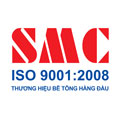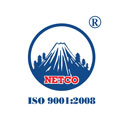Biodiversity boost from greener farming
Organic farms have around a third more species than conventionally-farmed ones, according to new research
There's been lots of investigation of how different agricultural methods affect the diversity of life present on farms, but the results vary between studies and from place to place.

An organic farm tour in the English countryside. Image: leigh on Flickr
So a group of scientists analysed 94 earlier studies, concluding that organic farming methods increased the number of species on average by 34% – an effect that's been stable over three decades and shows no sign of diminishing (See ref 1).
But this is only true of farms in temperate climates. Until more research is done we won't know if we're increasing biodiversity at all by paying more for organic versions of products like bananas and chocolate that grow in warmer climates.
“Our study shows that organic farming can yield significant long-term benefits for biodiversity,” says Sean Tuck, a PhD student at the University of Oxford and lead author of the paper, which appears in Journal of Applied Ecology. “Organic methods could go some way towards halting the continued loss of diversity in industrialised nations.”
Species richness
Some organisms benefit more than others. Plants underwent the greatest increase, with the number of species present increasing by around 70%. Pollinators came second, with half as many species again on organic farms, while birds, arthropods and microbes also did well. Organisms that decompose dead matter showed little effect, although this may be partly because they are comparatively little-studied.

Organic farms host more species than conventional farms.
Image: UGA College of Ag on Flickr
The benefit to biodiversity seems to be greater in intensively-farmed regions, particularly on organic farms surrounded by arable land. So it could be that having a few organic farms scattered around the landscape could benefit the intensively-cultivated farms in between by providing islands of biodiversity to nurture valuable organisms like bees, which pollinate crops, and predators, which help keep pests under control.
But Tuck argues the situation is more complex. It's true that many of the organisms that find refuge on organic farms can benefit surrounding intensively-cultivated ones. But on the other hand, intensive farming methods may damage the biodiversity nurtured on the organic farm. For instance, if neighbouring farms receive large doses of pesticide, bees and other pollinators from the organic farm may be badly harmed as well. “The effect goes both ways,” he says. “It depends on the scale you are looking at – a single isolated organic farm is likely to see more species, but at the landscape level the overall impact is much less clear.”
The study's results apply only to species richness, or the number of species present; they don't tell us anything about how many individuals of each species there were. There aren't as many studies of this abundance as of species richness, so Tuck says including it in the analysis would have reduced the amount of evidence that could be used and weakened the study's conclusions.
The concept of intensive farming is itself more complex than it might seem. “Some conventional farms will intensively spray pesticides and fertilisers whereas others will use mixed methods of crop rotation and organic fertilisers with minimal chemical pesticides,” says Dr Lindsay Turnbull, also of Oxford, the paper's senior author.
She adds that existing research has been biased towards temperate UK and European climates, and that more studies of the impact of organic farming in tropical, subtropical and Mediterranean climates are needed.
“There are also regional differences in farming practices, and the majority of the studies in our data were in developed nations with long histories of farming such as those in Western Europe,” she explains. “There, some wildlife have thrived in extensively managed farmland but are threatened by agricultural intensification. However, in developing nations there is often great pressure on the land to provide enough food for local people, resulting in the conversion of natural habitat to farmland. In such cases the benefits of organic farming are less clear, as this may require more land to achieve the same yield as conventional farming.”
Organic products like bananas and chocolate that are grown in hot climates are often marketed as being better for the environment, but without more research we don't know if this is true. “At present, we simply cannot say whether buying organic bananas or chocolate has a clear environmental benefit,” Turnbull says.
---------------------------
http://www.foodsecurity.ac.uk/














